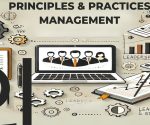Out of all the streams that a student chooses after finishing class 10, Commerce is one of the most popular streams among students due to ample career scopes for the future of those interested in business, finance, and economics. Core commerce subjects taught in class 11 are Accountancy, Business Studies, Economics, and English. Mathematics, Informatics Practices, or Entrepreneurship can be chosen as the optional subject. Altogether, these subjects build up the knowledge base regarding trade, business, and finance systems and set a base for future professional and academic pursuits in the same stream of commerce.
What is Commerce in Class 11?
Commerce is the study of trade, business activities, and financial transactions within an economy. Commerce mainly deals with the exchange of goods and services and the systems that facilitate these processes.
Commerce is a wide field that incorporates accounting, finance, economics, and management. Such skills are offered to students, including financial literacy, analytical thinking, and problem-solving. Apart from explaining the economy, these skills are very important for everyday and professional life.
This prepares the students for real-world business challenges, insight into market dynamics, and all kinds of entrepreneurship. Commerce does not adhere to a conventional method because most streams think in a strict theoretical approach or vice versa: the world applies that theory practically.
Core Subjects in Commerce for Class 11
Commerce education includes core subjects that form a strong foundation in business, economics, and communication. The subjects are core to the commerce curriculum and form a foundation for any career in finance, management, economics, and other related fields. Let’s see each core subject in detail:
Accountancy
Accountancy is the back bone of commerce. It is taught to teach the student basic recording, classifying, and summarizing financial transactions. Major topics include:
- Journal Entries and Ledgers: The students record transactions systematically.
- Trial Balance and Financial Statements: they learn to prepare balance sheets, profit & loss statements, and cash flow statements.
- Cost Accounting: This includes budgeting, cost analysis, and overhead allocation, which is very important for business organizations to control their finances.
Accountancy is part of each profession in accountancy, finance, auditing, and investment analysis, as well as playing a core professional course like CA, CMA or ACCA.
Business Studies
Business Studies includes the working and management of the organizations. Business studies enable the students with a concept of making wealth for business by the company and for their economic growth also. Some areas of study of prominent are as under:
- Principle of Management concepts related to Planning, Organising, Staffing, Directing, and Controlling.
- Entrepreneurship Development: This teaches students novel ideas and other novel business ideas.
- Marketing and Human Resource Management: It is the way through which human resources are managed besides the marketing of products.
This course is core to those who aim to enter a career in business management, entrepreneurship, marketing, and operations.
Economics
Economics avails ways for equipping an individual with skills in the operations of economies. It encompasses :
- Microeconomics: Microeconomics Examines small units, for example, households, firms, and markets. The material of this study is demand and supply, elasticity, and the theories that encompass production.
- Macroeconomics: Macroeconomics Includes more macro-indicators of the economy; some of the examples are GDP, inflation, unemployment, fiscal policies, and international trade.
- Economics is highly important in different dimensions such as economic analysis, public policy, banking, and data analysis. It also opens up an opportunity to pursue further higher studies like an MBA or an MA in Economics.
English
English is a business communication language. This subject will enhance the following skills of the student:
- Reading and Writing Skills: The drafting of business reports and proposals and proper correspondence.
- Speaking and Listening Skills: Would confidently present their report to the client, hand old client meetings and negotiations.
- Comprehension: Comprehend contracts, policies, and professional documents.
English is also critical for the professions of corporate communication, public relations, and international business. This will enhance students’ confidence levels in the international job markets too.
Optional Subjects in Commerce for Class 11
Optional subjects enable students to specialize in areas of interest and tailor their education to match career aspirations. The optional subjects add additional skills to the core commerce curriculum. Here is a more detailed look at popular optional subjects:
Mathematics
Mathematics is highly recommended for students with aspirations in finance, data analytics, or actuarial science. Mathematics apt for the students for competing tests like CAT, GMAT, or GRE, and professional certification courses in CFA. Key topics include:
- Statistics: The processes involved are collection, analysis, and interpretation of data, which is always needed for financial planning and market research.
- Probability: This would include risk analysis, along with decision-making under uncertainty, which can be of use in both economics and insurance.
- Algebra and Calculus: These will help to solve very complex problems encountered in business as well as in economics.
Informatics Practices
Informatics practice deals with technology integration with a business. Thus, it can be aptly suited for all those students, who are inquisitive with IT-enabled solutions for business. IP opens opportunities in IT consulting, data management, and business analytics. At the core, there are:
- Programming Languages– Introduction to any of the technologies like Java Python or SQL in the context of business application.
- Database Management: Relational databases and how data is stored, accessed, and analyzed.
- Networking and E-Commerce: Online business operations and cybersecurity essentials.
Entrepreneurship
Entrepreneurship is very appropriate for students interested in innovation and business creation. The topic is beneficial for prospective entrepreneurs, startup consultants, and venture capitalists. Topics include:
- Business Planning: This is where the drafting of business proposals and pitching to investors is shown.
- Market Research: Explores how to research the needs of customers and the strengths and weaknesses of competitors.
- Resource Management: Focuses on ways to save time, money, and personnel resources.
Physical Education
Physical Education is a lecture subject that keeps the body healthy and fit. The subject doesn’t connect to the commerce field but maintains the school timetable besides making students experience teamwork, discipline, and the alleviation of stress.
Foreign Language (Optional)
Globalization in businesses will eventually mean a growing requirement to have foreign languages; such as French, German, or Mandarin be added on so that students acquire a special competitive advantage in their trade with nations in the context of diplomacy and the multinational corporations.
Subject-Wise Syllabus & Topics Covered
The subjects taught in commerce class 11 are designed to build a strong foundation in business and economics. Students study both core and optional subjects, which vary depending on the school board and individual preferences.

Here is a detailed table that provides an overview of the commerce subjects in class 11, including core and optional subjects, along with their descriptions and relevance: Core and Optional Subjects in Commerce
| Category | Subjects |
| Core Subjects | Accountancy |
| Business Studies | |
| Economics | |
| English | |
| Optional Subjects | Mathematics |
| Informatics Practices | |
| Entrepreneurship | |
| Applied Mathematics | |
| Psychology | |
| Physical Education |
How to Choose the Right Optional Subject?
Choosing the right optional subject in Class 11 Commerce is important for your academic success and future career. Here’s how you can make the best choice:
- Assess Your Interests: Choose subjects that you genuinely enjoy and feel curious about.
- Understand the Subject Scope: Research what each subject covers and how it aligns with your career goals.
- Check Future Relevance: Some optional subjects like Mathematics or Economics are useful for professional courses like CA, CS, MBA, etc.
- Evaluate Your Strengths: Pick subjects where you have a natural aptitude or previous good performance.
- Seek Expert Advice: Talk to teachers, seniors, and career counselors to get better insights.
- Balance the Workload: Some subjects may require more effort; choose wisely based on your schedule.
Commerce Subjects vs Science & Arts Streams
Commerce, Science, and Arts are three major streams students can choose after their school education, and each opens doors to different career opportunities. Each stream holds immense value and potential. Success depends more on an individual’s passion, hard work, and long-term vision rather than just the stream they choose.
- Commerce trains students for the corporate world, banking sector, and entrepreneurial ventures.
- Science builds the foundation for technological innovations, research, healthcare, and engineering sectors.
- Arts nurtures creativity, social awareness, administrative skills, and critical analysis.
| Aspect | Commerce | Science | Arts |
| Main Subjects | Accounting, Business Studies, Economics | Physics, Chemistry, Biology, Math | History, Political Science, Sociology, Literature |
| Focus Area | Trade, Business, Finance, Economy | Experiments, Research, Technology | Creativity, Culture, Human Society |
| Skill Development | Financial skills, Business analysis, Management | Logical reasoning, Problem-solving, Analytical thinking | Critical thinking, Communication, Creativity |
| Career Options | CA, CS, BBA, MBA, Economist, Banker | Engineering, Medicine, Data Scientist, Researcher | UPSC, Journalism, Law, Teaching, Content Writing |
| Nature of Study | Practical with theoretical concepts | Theoretical with experimental application | Theoretical, Analytical, and Interpretative |
Career Paths After Each Subject of Commerce Class 11
Choosing commerce subjects in Class 11 opens multiple exciting career paths. Each subject helps build a strong foundation for professional courses like B.Com, BBA, CA, CS, CMA, and various specialized degrees. Here’s a quick look at options after studying each subject:
- Accountancy: Leads to careers like Chartered Accountant (CA), Cost Accountant, Auditor, and Financial Analyst.
- Business Studies: Opens paths in Business Management, Entrepreneurship, Marketing, and Human Resources (HR).
- Economics: Careers include Economist, Data Analyst, Economic Researcher, and Policy Advisor.
- Mathematics: Essential for careers in Actuarial Science, Investment Banking, Statistics, and Risk Management.
- Informatics Practices (IP): Leads to roles like Software Developer, Data Scientist, and IT Manager.
- Entrepreneurship: Prepares students to start their own businesses or work in business consultancy.
- Legal Studies: Forms the base for a career in Law, d, or Legal Advisory roles.
Commerce Stream Boards Found in India
India offers several types of boards for the commerce stream in class 11. These are referenced by the students based on their academic interests and aspirations. Every one of them differs in the curriculum, and it focuses on specific subjects along with providing higher education as well as preparing the student for competitive exams. Below is a short description of some of the prominent commerce boards present in India.
1. CBSE (Central Board of Secondary Education)
The CBSE board is one of the most preferred options for students who do commerce because the curriculum followed by the board is accepted all over the country. It has been well known to have a very systematic approach to teaching and preparing a student in respect of competitive examinations.
Key Features:
- Commerce Subjects in Class 11 CBSE:
- The core subjects include Accountancy, Economics, Business Studies, and English, along with optional subjects like Mathematics, Informatics Practices, or Physical Education.
- The curriculum focuses on concept clarity and practical applications, ensuring students understand both theoretical and real-world scenarios.
- CBSE prepares students for exams like CA Foundation, CS Foundation, and other commerce-related competitive exams.
Who Should Choose CBSE?
CBSE is suitable for students who require a balanced curriculum that prepares them for higher education in commerce fields while also preparing them for competitive exams.
2. ICSE (Indian Certificate of Secondary Education)
The ICSE board is renowned for its comprehensive and wide syllabus, which takes the concepts of commerce subjects to a deeper level. It emphasizes developing analytical and critical thinking skills.
Key Features:
- Subjects like Commerce, Economics, Commercial Applications, and Business Studies are usually taught in more detail than other boards.
- The ICSE syllabus encourages practical examples and real-life applications, making it easier for students to connect theory with practice.
- The curriculum is widely recognized by international universities, making it a good option for students planning to study abroad.
Who Should Choose ICSE?
ICSE is ideal for students who like a detailed and analytical study of commerce and are planning to pursue higher education abroad or in specialized fields.
3. State Boards
Every Indian state has its board, which teaches commerce subjects that are relevant to the context of the state. In such boards, the focus remains on regional languages, local economies, and practical examples that are significant to the particular state.
Key Features:
- Core subjects: Accountancy, Economics, Business Studies; plus other subjects or local topics for a few states
- State boards are less complicated than those of CBSE and ICSE. This makes state boards an even more realistic option for many students.
- Exam pattern: Highlybasede on rote learning but evolving in-application-based learning in many states
Examples of State Boards:
- Maharashtra State Board (HSC)
- Tamil Nadu State Board
- Karnataka PUC Board
Who Should Choose State Boards?
State boards are perfect for students who are likely to join a college in the same state because they resemble entry-level exams at that level and for regional colleges.
4. IB (International Baccalaureate)
IB offers a curriculum, that is renowned worldwide; the stress, however, lies on research-based learning and the development of critical thinking. This course would be ideally suited for college-going students attending colleges abroad.
Key features:
- The commerce stream in IB provides subjects such as Business Management and Economics, taught from the global perspective of Mathematics.
- IB focuses on the work done through research projects, case studies, and real-world problems solved, which tends to push the students to think beyond traditional commerce theories.
- The curriculum-based assessments tend to be spread throughout the academic year, so the evaluation builds less dependence on final exams.
Who Should Choose IB?
These will be of great use to international options seekers, whether it is academic or professional.
5. Cambridge International (CIE)
The Cambridge International exam board offers commerce subjects under its IGCSE and AS/A-Level programs that aim to open the minds of students across the world.
Some commerce subjects include business studies, accounting, mathematics, and economics.
Key features:
- This board is application-based and inquiry-driven, and for this reason, it is fit for international standards in academics.
- The syllabus offered is problem-solving and analytical. Therefore, it gets the student ready for further education and the global job market.
Who should opt for NIOS?
This board will be suitable for students who would like to pursue a flexible curriculum aligned with an international curriculum while having a huge focus on learning and application all over the globe.
6. NIOS
This board of education allows students to study in their schedule, and the board is best suited for students who avoid the traditional style of schooling and education.
Key features:-
- Core commerce subjects include Accountancy, Economics, and Business Studies. Optional subjects may be Data Entry Operations or Marketing, which will be flexible enough.
- The students can pursue this course at their own pace even while working.
- All the universities and professional institutions all over India accept NI for OS and hence it becomes a great alternative for commerce aspirants.
Who should choose NIOS?
- Students who require flexibility in studies owing to personal professional or health reasons should choose NIOS.
For Class 11th and 12th Commerce, the importance of the stream is that it prepares the student for professional life and college. Commerce balances the areas of academic study and the working experience.
Subjects of commerce, like accountancy and economics, do not just make it to theory alone but are closely applicable in practice. For instance, students will know how to study company financial statements, appreciate the behavior of the market, and therefore make sensible business decisions that prove invaluable when going into corporate service.
The commerce stream acts as a stepping stone for professional courses like Chartered Accountancy (CA), Company Secretary (CS), or an MBA. It also equips students with entrepreneurial skills, making them capable of starting their ventures.
Commerce Subjects in Class 11 FAQs
What are the subjects in commerce class 11?
The core subjects of commerce in class 11 are Accountancy, Economics, Business Studies, and English. The optional subjects are Mathematics, Informatics Practices, or Entrepreneurship as per the student’s interest and career aspirations.
Which is the best subject in commerce?
There is no single “best” subject in commerce; it depends on a student’s interests and career goals. However, Accountancy and Economics are often considered core subjects with wide career opportunities.
What is the easiest subject in commerce?
The easiest subject in commerce often depends on a student’s personal interest and aptitude. However, many students find Business Studies easier because it involves understanding concepts rather than complex calculations.
Can I do CA without Maths in Class 11?
Yes, you can pursue CA without having Maths in Class 11. Maths is not mandatory for enrolling in the CA Foundation course.
How many subjects are there in commerce class 11?
In the commerce class 11 stream, typically five subjects are studied, four core and one optional, which depends upon the board and school.
Is Maths compulsory in commerce?
No, mathematics can be avoided because it is not one of the requirements. The alternative subjects would include Informatics Practices, Entrepreneurship, or Psychology.
What are the career options after studying commerce in class 11?
Commerce offers a wide range of career options comprising Chartered Accountancy, Company Secretary, MBA, Economist, and Entrepreneur. It prepares students for the roles of finance, management, law, and many more.


